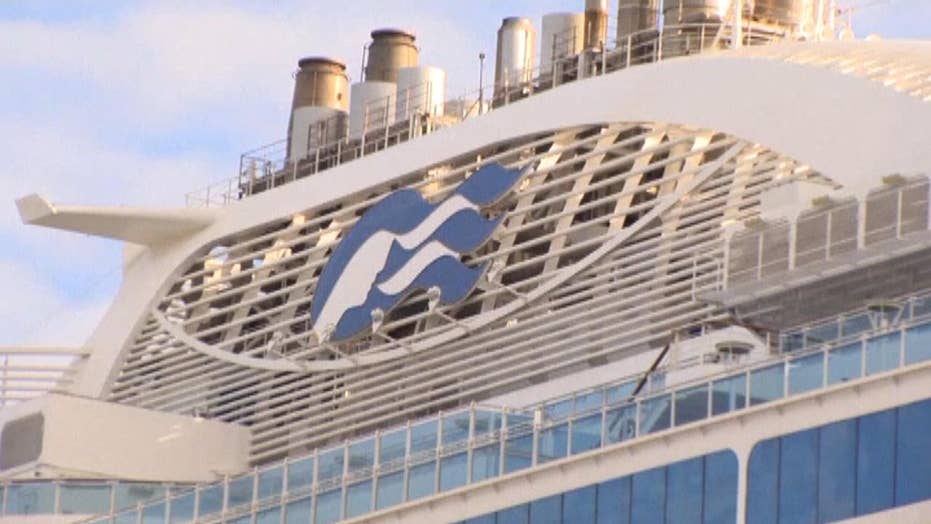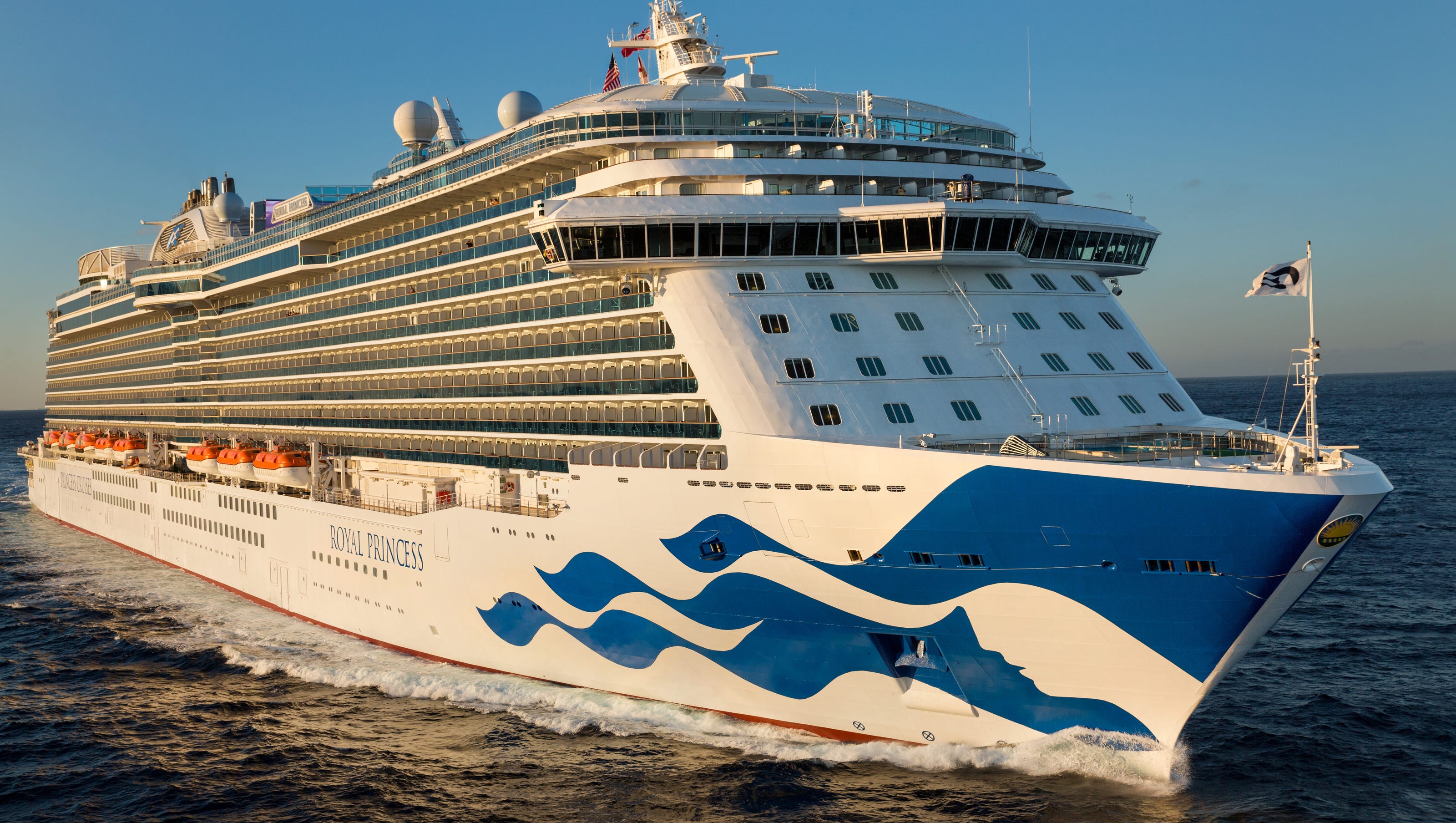When you hear about a passenger dying on a cruise ship, it’s natural to feel uneasy. The idea of a vacation turning into a tragedy is something no one expects. But what really happens when such incidents occur, and how safe are these massive floating hotels? Let’s dive into the details, uncover the facts, and explore what you need to know if you're planning your next cruise.
We all dream of that perfect getaway where the sun is shining, the sea is calm, and the vibes are relaxing. Cruises offer a unique way to travel, combining luxury with convenience. But every now and then, news breaks about a passenger dying on a cruise ship, and it raises questions. Is this a rare occurrence, or should we be worried?
Before we jump into the specifics, let’s address the elephant in the room: safety. Cruise ships are massive vessels designed to carry thousands of passengers, and while they’re generally safe, accidents can happen. Understanding the risks and knowing what steps are in place to prevent them is crucial for anyone considering a cruise vacation.
Read also:Unraveling The Mystery Of King Von Autopsy Released
Understanding the Incident: What Happens When a Passenger Dies on a Cruise Ship?
Let’s break it down. When a passenger dies on a cruise ship, it’s not just a matter of calling an ambulance. These ships are essentially small cities at sea, and handling such situations requires a well-coordinated response. Here’s what typically happens:
- Immediate Response: The ship’s medical staff is trained to handle emergencies. They assess the situation and provide care as needed.
- Notification of Authorities: Depending on the ship’s location, local authorities or international maritime laws come into play. The ship’s captain is responsible for reporting the incident.
- Support for Family and Friends: Cruise lines offer counseling services and support for those affected by the tragedy.
It’s important to note that while these incidents are tragic, they’re relatively rare compared to the millions of passengers who sail safely every year. Still, understanding the procedures in place can help ease concerns.
How Common Are Deaths on Cruise Ships?
Deaths on cruise ships are statistically uncommon. According to data from the International Cruise Victims (ICV), the number of fatalities is quite low compared to the total number of passengers. However, the exact figures can vary depending on the cruise line, destination, and other factors.
For instance, in 2022, there were approximately 30 million cruise passengers globally, with only a handful of reported deaths. This doesn’t mean it’s not a serious issue, but it does highlight how rare these incidents are. Factors like age, pre-existing health conditions, and accidents contribute to the majority of cases.
Common Causes of Death on Cruise Ships
While every case is unique, certain patterns emerge when examining the causes of death on cruise ships:
- Medical Emergencies: Heart attacks, strokes, and other sudden health issues are among the leading causes.
- Accidents: Falls overboard, drowning in pools, or slipping on deck are unfortunate but preventable accidents.
- Suicide: Tragic as it is, some passengers take their own lives during the voyage.
It’s worth noting that cruise lines are improving their safety measures to minimize these risks. From better medical facilities to enhanced security systems, they’re constantly evolving to protect passengers.
Read also:Unraveling The Mystery How Old Is Paul Walker A Tribute To A Timeless Star
Are Cruise Ships Safe for Travel?
Despite the occasional tragedy, cruise ships are generally considered safe. They undergo rigorous inspections, adhere to international safety standards, and employ trained professionals to ensure passenger well-being. But like any form of travel, there are risks involved.
One key factor is the ship’s size and capacity. Larger ships often have more resources, including advanced medical equipment and multiple doctors onboard. Smaller vessels, while charming, may have fewer amenities and less capacity to handle emergencies.
Ultimately, your safety depends on a combination of the cruise line’s protocols and your own precautions. Staying informed and prepared can make all the difference.
Steps to Stay Safe on a Cruise Ship
Here are a few tips to ensure a safer cruise experience:
- Research the cruise line and ship beforehand to understand their safety record.
- Pay attention to safety briefings and familiarize yourself with emergency procedures.
- Avoid excessive alcohol consumption, especially near railings or pools.
- Report any suspicious behavior or hazards to the crew immediately.
By taking these simple steps, you can reduce the likelihood of encountering dangerous situations.
Legal and Ethical Implications of Passenger Deaths
When a passenger dies on a cruise ship, legal and ethical questions arise. Who’s responsible? What rights do the family have? These are complex issues that depend on various factors, including where the incident occurred and the circumstances surrounding it.
Cruise lines are bound by international maritime laws, which dictate their obligations in such situations. They’re required to investigate the incident thoroughly and provide necessary support to the affected parties. However, the legal process can be lengthy and complicated, especially if multiple jurisdictions are involved.
Ethically, cruise lines have a duty to ensure passenger safety and transparency. They must communicate openly with families and the public about what happened and take steps to prevent similar incidents in the future.
What Rights Do Families Have?
Families of deceased passengers have certain rights, including access to information, compensation, and legal recourse. Working with experienced maritime attorneys can help navigate these complexities and ensure their voices are heard.
Passenger Dies on Cruise Ship: Real-Life Stories and Lessons Learned
Let’s look at a few real-life examples to understand the broader implications of these incidents. In 2021, a passenger aboard a popular cruise line suffered a heart attack and passed away despite medical intervention. This tragedy sparked discussions about the adequacy of onboard medical facilities and the need for improved emergency protocols.
Another case involved a passenger who fell overboard during a late-night party. While investigations revealed alcohol was a contributing factor, it also highlighted the importance of passenger behavior and crew vigilance.
These stories serve as reminders of the importance of safety awareness and preparedness. Learning from past incidents can help prevent future tragedies.
How Cruise Lines Are Improving Safety Measures
In response to these incidents, cruise lines are implementing new technologies and practices to enhance safety:
- Installing advanced surveillance systems to monitor passenger activity.
- Expanding medical facilities and hiring additional medical staff.
- Providing regular training for crew members on emergency response.
These efforts demonstrate a commitment to passenger safety and show that cruise lines are taking these issues seriously.
What Can Passengers Do to Stay Informed?
Knowledge is power, and staying informed is key to enjoying a safe and enjoyable cruise. Before booking your trip, research the cruise line’s safety record, read reviews from previous passengers, and familiarize yourself with their policies.
Additionally, consider purchasing travel insurance that covers medical emergencies and other unforeseen events. This extra layer of protection can provide peace of mind and financial security.
Questions to Ask Before Booking a Cruise
Here are some questions to ask when planning your cruise:
- What medical facilities are available onboard?
- Are there restrictions on certain activities, such as swimming at night?
- What emergency procedures are in place?
Arming yourself with this information can help you make an informed decision and reduce potential risks.
Conclusion: Staying Safe and Enjoying Your Cruise
In conclusion, while the thought of a passenger dying on a cruise ship is unsettling, it’s important to remember that these incidents are rare. Cruise lines are continuously improving their safety measures to ensure passenger well-being. By staying informed, taking precautions, and understanding your rights, you can enjoy a memorable and secure vacation.
We encourage you to share your thoughts and experiences in the comments below. Have you ever encountered a safety issue on a cruise? What steps do you take to stay safe while traveling? Your input can help others make smarter decisions.
And don’t forget to explore our other articles for more travel tips and insights. Safe travels!
Table of Contents


